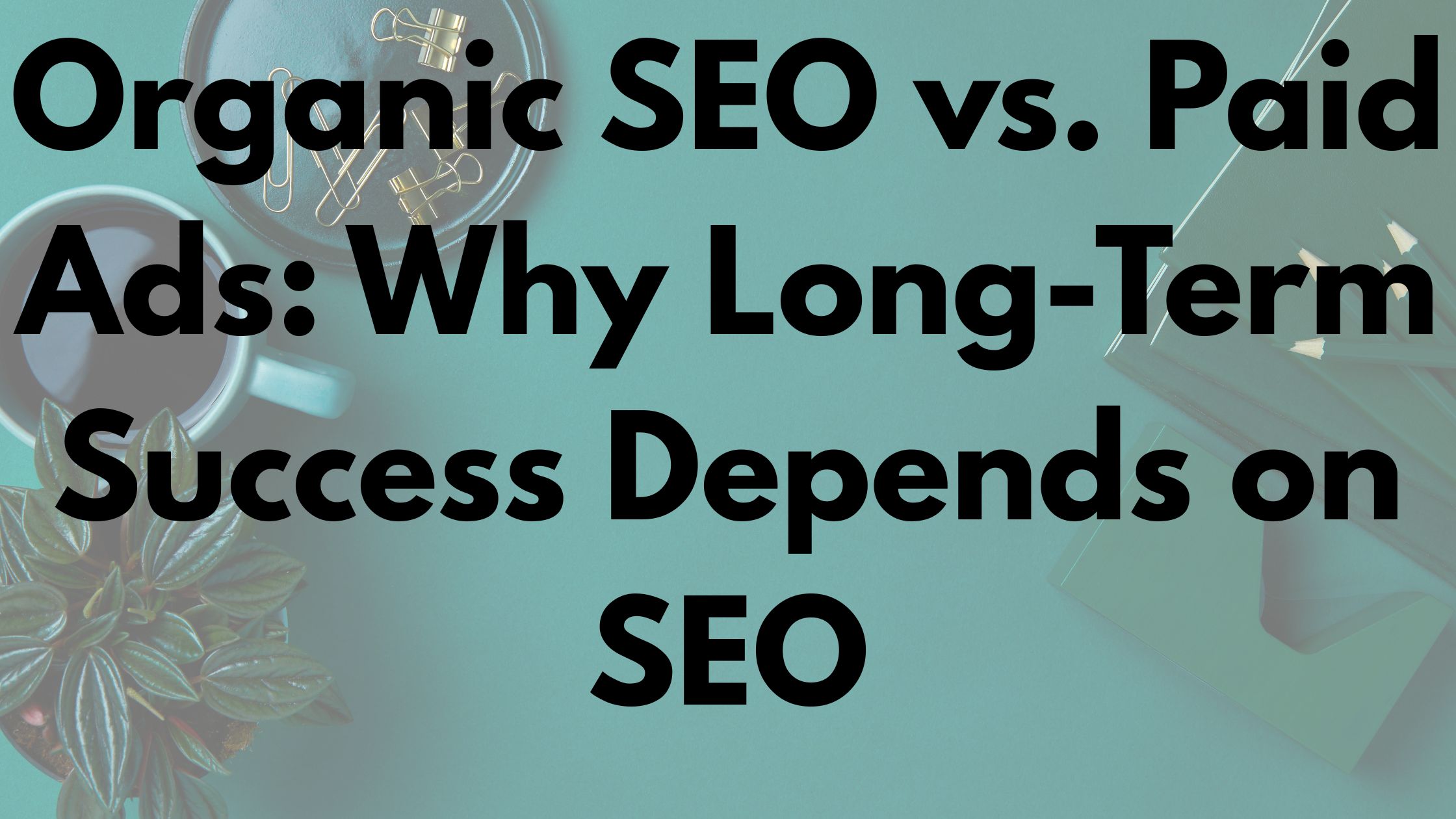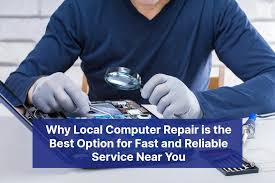Organic SEO vs. Paid Ads: Why Long-Term Success Depends on SEO
In today’s digital marketing arena, the battle between organic SEO and paid ads often sparks heated debates. Which strategy wins? Which one delivers better returns? If you listen closely, you’ll hear countless voices championing immediate traffic from paid ads. Yet, underneath that noise lies a quieter, but far more powerful story — the enduring impact of organic SEO.
Let’s dive deep into this story, peeling back the layers to understand why long-term success is anchored in organic SEO, while paid ads often play a more fleeting role.
The Instant Gratification of Paid Ads
There’s no denying it: paid advertising grabs attention fast. Want to be number one on Google tomorrow? Throw some money into Google Ads, Facebook Ads, or other pay-per-click platforms, and you’re there. The speed and control are tempting.
Paid ads let you:
- Precisely target demographics, interests, and behaviors.
- Adjust campaigns instantly based on real-time performance data.
- Test offers, creative, and messaging rapidly.
But here’s the catch: this immediacy comes at a cost. Literally.
Pay-per-click campaigns require consistent investment. The moment you stop funding, the visibility evaporates. Your site disappears from the top spots. The traffic dries up. The leads, the conversions — they vanish just as quickly as they arrived.
In other words, paid ads are powerful but inherently temporary.
The Slow-Build Power of Organic SEO
Contrast that with organic SEO. Building organic traffic isn’t an overnight project. It’s a marathon, not a sprint. The work involves:
- Creating valuable, relevant content that answers real questions.
- Optimizing technical elements like site speed and mobile usability.
- Earning credible backlinks that vouch for your site’s authority.
- Continuously adapting to evolving search engine algorithms.
It demands patience and strategic thinking, but the rewards are different. Organic SEO builds a foundation that stands firm long after the initial work is done.
A well-executed SEO strategy creates a self-sustaining source of traffic. It’s the equivalent of planting a fruit tree rather than buying a basket of fruit. Over time, the tree yields continuously, compounding your investment.
Trust and Credibility: Organic SEO’s Secret Weapon
When users click on a paid ad, there’s often a sense of skepticism. Many have developed “ad blindness,” unconsciously filtering out paid placements in favor of organic results. Organic listings signal trustworthiness because users perceive them as “earned” rather than “bought.”
Search engines like Google invest enormous effort to ensure organic results genuinely satisfy user intent. Rankings are earned through relevance, quality, and authority — not budget size.
This trust translates into higher click-through rates for organic listings over time. People are more likely to engage deeply, share content, and convert when the connection feels authentic.
Cost Efficiency Over Time
It might sound counterintuitive, but organic SEO is often more cost-effective than paid ads over the long haul. While paid ads require continuous budget allocations, organic SEO involves upfront and ongoing work that builds equity.
Consider these points:
- Initial investment: SEO may require more time and resources upfront to develop a solid strategy and content.
- Ongoing costs: Maintaining SEO involves updates and content creation but is typically lower than recurring ad spend.
- Longevity: SEO gains persist and grow, while ads stop delivering the moment funding ends.
This means that savvy businesses see SEO as a long-term asset — a digital property that appreciates in value rather than a rent expense.
The Role of Data and Analytics
Paid ads shine with their robust data and instant feedback loops. Marketers can tweak campaigns daily, optimizing for conversion rates and cost-per-click.
Organic SEO analytics, meanwhile, require a more nuanced approach. Metrics like organic traffic trends, keyword rankings, bounce rates, and engagement patterns take time to build a meaningful story.
That said, combining these insights over time creates an unmatched understanding of audience behavior and content performance. SEO data enables continuous refinement that pays dividends across marketing channels.
Synergy: Why You Don’t Have to Choose One
It’s tempting to see organic SEO and paid ads as adversaries, but in reality, they complement each other. Paid ads provide immediate visibility that can support product launches or promotions, while SEO builds the persistent traffic engine that fuels ongoing growth.
When used together, paid ads can:
- Test keywords and messages that inform SEO content strategies.
- Capture high-intent traffic while SEO rankings mature.
- Amplify content that’s already performing well organically.
The best marketers integrate both thoughtfully, allocating budgets and effort based on specific business goals and timelines.
The Impact of Algorithm Updates
Google’s algorithms are famously complex and ever-changing. Paid ads are less directly affected by these updates since they rely on bidding and quality scores. Organic SEO, however, must adapt continuously to maintain rankings.
This adaptation forces SEO professionals to focus on quality, relevance, and user experience—principles that benefit users and businesses alike. Those who invest in solid SEO practices develop resilience, weathering algorithm shifts that disrupt less grounded competitors.
Branding Benefits of Organic SEO
Beyond traffic and conversions, organic SEO plays a vital role in brand building. Consistently appearing in top search results establishes authority and familiarity. Over time, this builds brand equity — an intangible asset that paid ads alone cannot fully replicate.
SEO content also allows brands to tell their story, showcase expertise, and engage audiences meaningfully. These connections lay the groundwork for customer loyalty and advocacy.
Common Misconceptions About Organic SEO
It’s worth addressing some myths that often cloud the organic SEO conversation:
- “SEO is dead.” Far from it. SEO evolves but remains fundamental to online visibility.
- “SEO guarantees quick results.” No, it requires patience and effort but pays off sustainably.
- “Only small businesses need SEO.” All businesses, large and small, benefit from organic visibility.
- “SEO is just about keywords.” It’s a multifaceted strategy encompassing content, technical health, links, and user experience.
Understanding these nuances helps avoid costly mistakes and unrealistic expectations.
How to Prioritize SEO for Long-Term Success
If you’re convinced that SEO deserves a central role in your marketing mix, the next question is: where to start? Here are key priorities:
- Conduct thorough keyword and competitor research to identify opportunities.
- Audit your website’s technical SEO health and fix critical issues.
- Develop a content strategy focused on user intent and value.
- Build relationships for authentic backlink acquisition.
- Monitor analytics regularly and adapt your strategy accordingly.
A disciplined approach guided by expertise will maximize your SEO ROI over time.
Conclusion: The Sustainable Path Forward
In the contest of organic SEO versus paid ads, it’s clear that long-term success depends heavily on SEO. Paid ads offer undeniable advantages for quick wins and targeted campaigns, but they lack the lasting foundation that organic SEO builds.
Organic SEO crafts a legacy of trust, authority, and steady traffic that pays dividends for years. For businesses ready to invest wisely in their digital future, collaborating with an experienced organic seo agency can be the difference between fleeting visibility and lasting growth.
In a digital world where attention is currency, SEO remains the most reliable bank for building genuine, sustainable connections with your audience.













